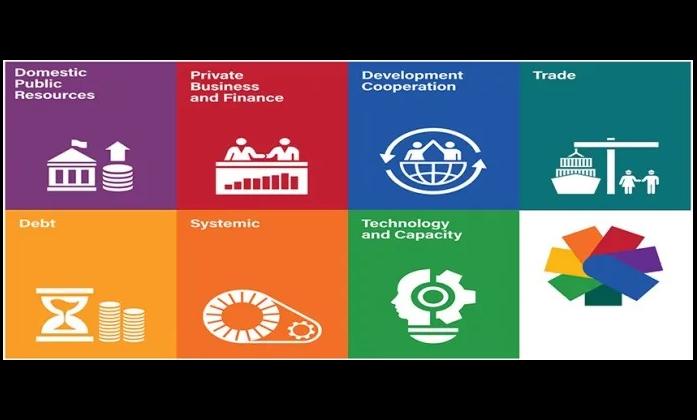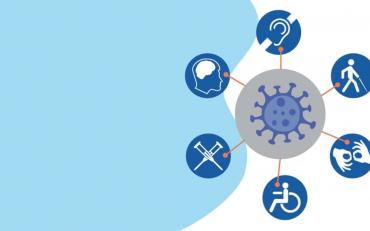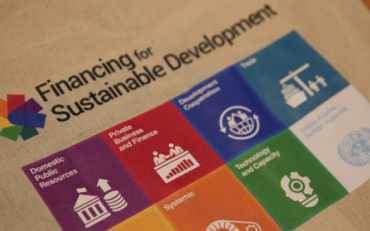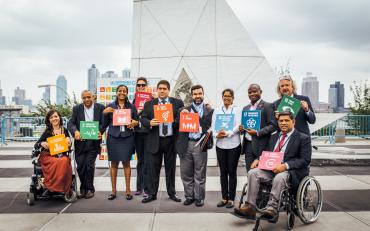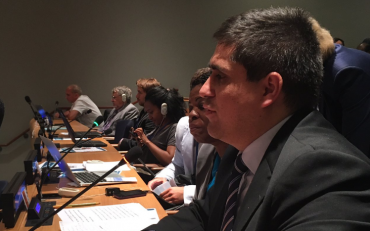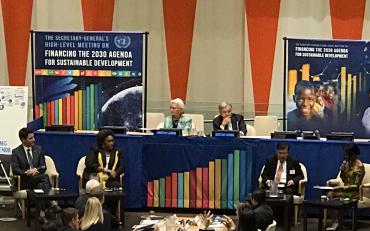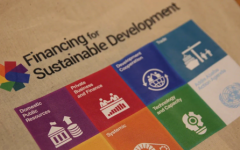 The seventh Forum on Financing for Development follow-up (FfD Forum) was held from 25 to 28 April 2022. The FfD Forum is an intergovernmental process with universal participation mandated to review the Addis Ababa Action Agenda and other financing for development outcomes and the means of implementation of the Sustainable Development Goals.
The seventh Forum on Financing for Development follow-up (FfD Forum) was held from 25 to 28 April 2022. The FfD Forum is an intergovernmental process with universal participation mandated to review the Addis Ababa Action Agenda and other financing for development outcomes and the means of implementation of the Sustainable Development Goals.
As a result of advocacy led by the Stakeholder Group of Persons with Disabilities, the Outcome Document of the 2022 ECOSOC Forum on Financing for Developmentcontains three references to persons with disabilities. They are included in cross-cutting issues, in improved monitoring of social protection coverage, and digital inclusion. Details are below.
- Cross-cutting issues: We recognize the urgent need to support, in particular, those who are vulnerable or in vulnerable situations, including women and girls, youth, persons with disabilities, older persons, indigenous peoples, local communities, refugees, displaced persons and migrants, to protect human rights for all, and to ensure that no country or person is left behind (paragraph 7).
- We commit to improved monitoring of social protection coverage disaggregated by sex, age, disability and other characteristics relevant in national contexts (paragraph 7).
- Science, technology, innovation and capacity building: We will redouble our efforts to ensure universal and affordable Internet access, through enhancing investment in digital infrastructure, digital skills training and digital literacy, as well as through targeted policies, especially for women and girls, youth, and persons with disabilities to close digital divides within and between countries and build an open, free and secure digital world (paragraph 62).
Check out a related blog written by our partners on why tax justice is critical to the rights of persons with disabilities that uses examples from Switzerland, the UK, and India to illustrate why the rights of persons with disabilities cannot be fully realized without reform of the international tax system.
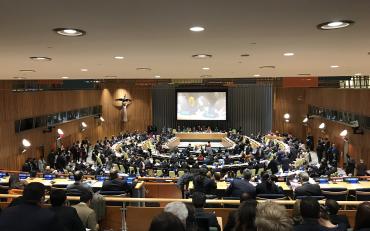
 The seventh Forum on Financing for Development follow-up (FfD Forum) was held from 25 to 28 April 2022. The FfD Forum is an intergovernmental process with universal participation mandated to review the Addis Ababa Action Agenda and other financing for development outcomes and the means of implementation of the Sustainable Development Goals.
The seventh Forum on Financing for Development follow-up (FfD Forum) was held from 25 to 28 April 2022. The FfD Forum is an intergovernmental process with universal participation mandated to review the Addis Ababa Action Agenda and other financing for development outcomes and the means of implementation of the Sustainable Development Goals.